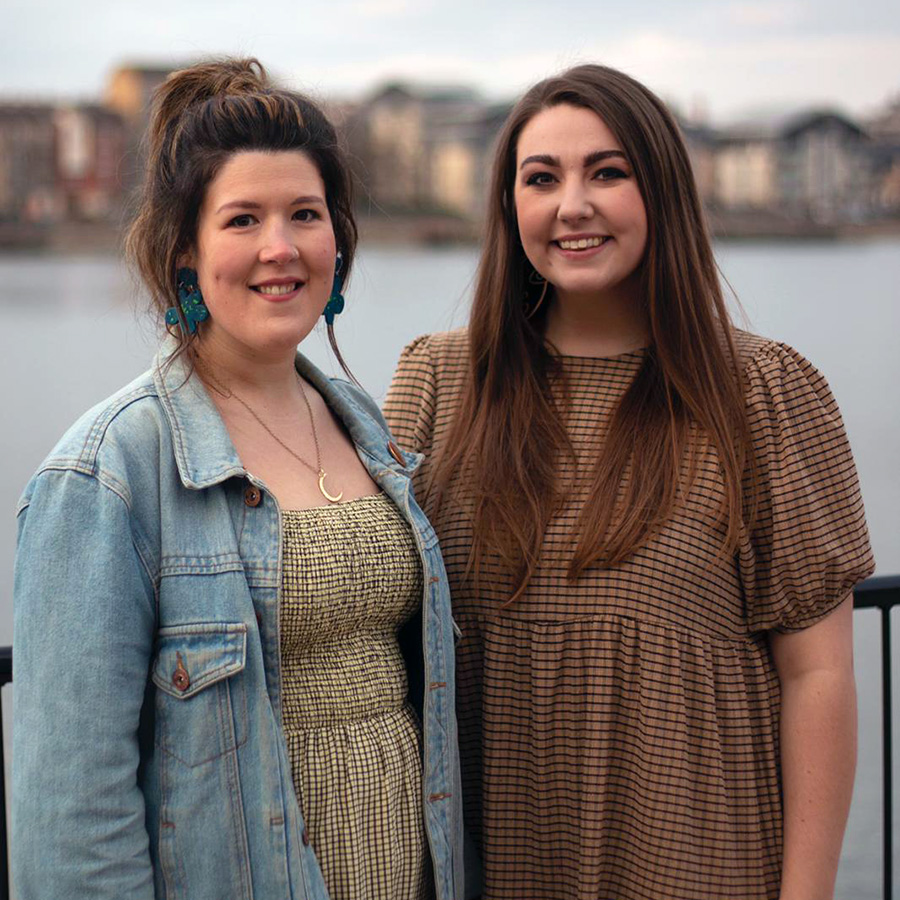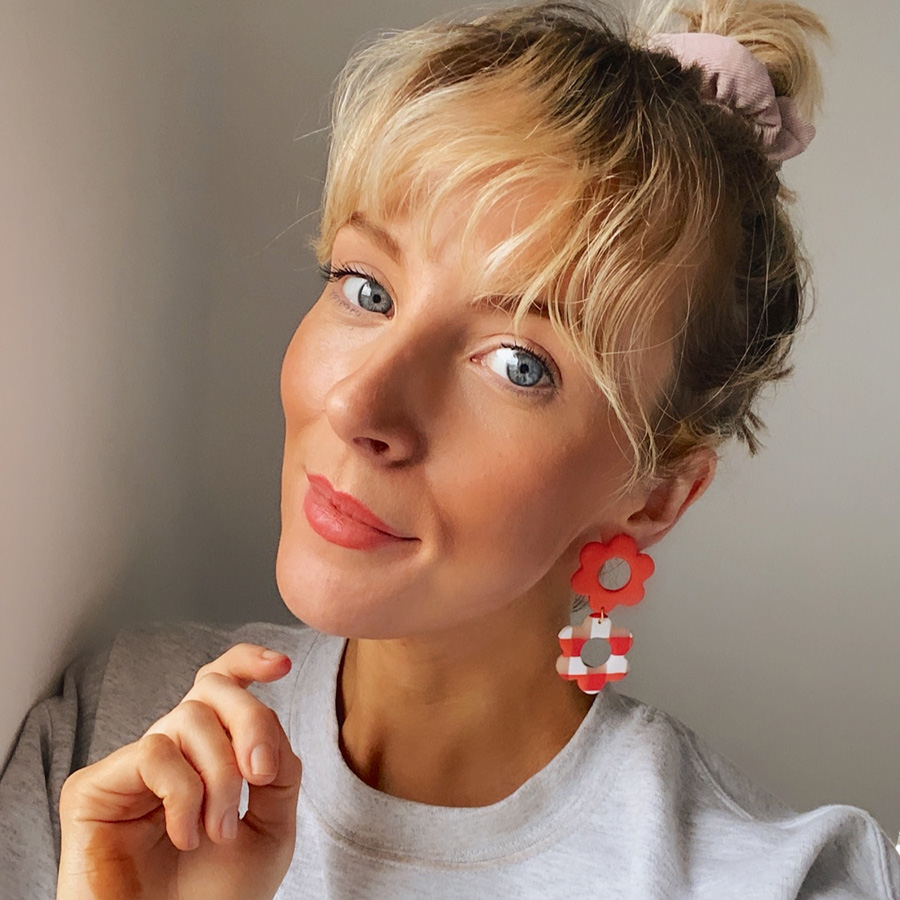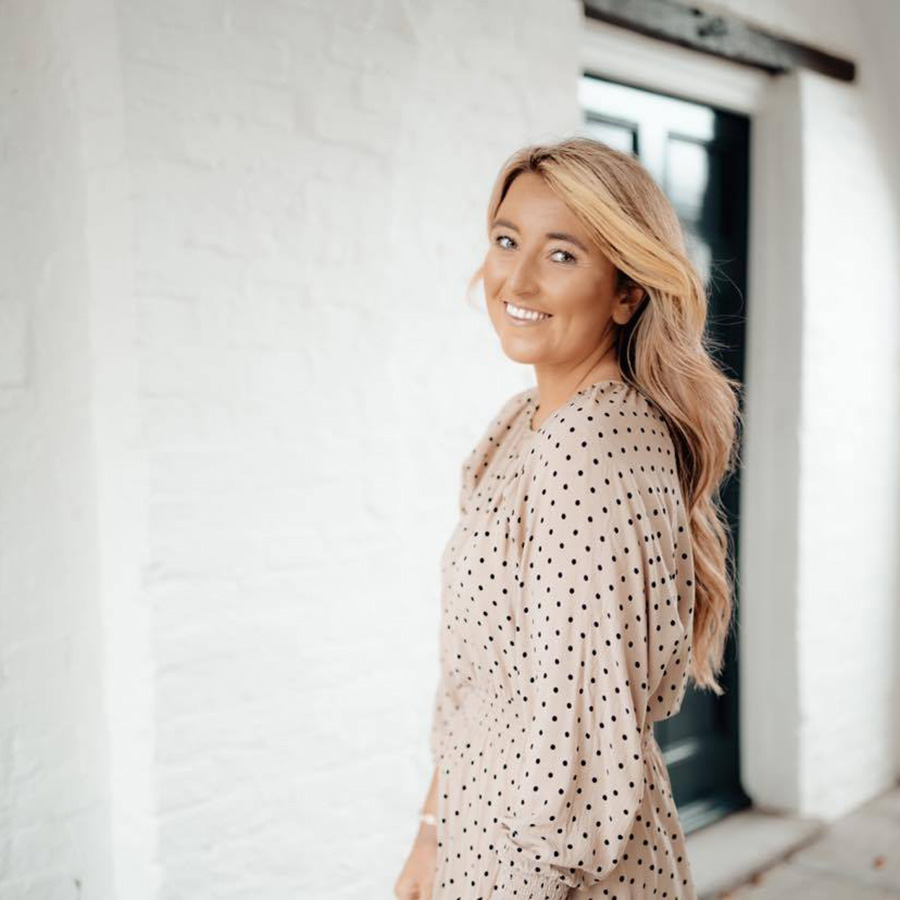Meet the Welsh women who took the pandemic by the horns and made the most of a bad business situation: by becoming their own boss

Starting a business is tough. It requires effort, determination, and financial support: a daunting prospect for anyone, but especially women who, during the pandemic, were among those bearing the brunt with job and pay cuts. As businesses were forced into a ‘Covid economy’, its unsolicited impact caused numbers to fall by 29% in March. Though by June 2020, UK statistics show an increase of 47%, and despite various restrictions, almost 20,000 Welsh businesses were created; 28% of which owned by women, according to a recent government report.
Though this is a rise, many women still face barriers in the business world: childcare, responsibilities, confidence and societal expectation. A report by Business Wales said, “Cultural norms and gender stereotyping in society can make women less confident in their capacities as business owners,” adding men were 20% more likely to gain support.
Business Wales, alongside companies like Chwarae Teg have launched initiatives to help women entrepreneurs, hoping to change this. To date, 23% of Small and Medium-sized Enterprises in Wales are female-fronted, one report states, and the popularity among women to run a business – on their own time – is growing: almost 50% of enquiries submitted to Business Wales are from women, showing interest is building.
Helen Antoniazzi, director of policy and communications at Chwarae Teg says, “Anecdotally there does seem to be an increase.” With Covid-19 affecting most business opportunities, she was pleasantly shocked at the number of women coming forward for help between March and December.
In the year since the pandemic began, many have turned the woes of lockdown into fruitful entrepreneurial opportunities. Here are three female-led businesses that started in 2020 and, despite national restrictions, are thriving.
Terrazzo trinkets and colourful coasters: meet Lumo & Sonne


Barry-based Lumo & Sonne is an online homeware store specialising in Terrazzo, a composite material of marble chippings bonded with resin. Founded by insurance advisors Emma Wilkins, 32, and Olivia Fowler, 24, the idea began in April 2020. Having both completed artistic degrees, the insurance industry wasn’t fulfilling their career needs and with lockdown frustration setting in, they allowed their creative side to flourish.
“We’ve always wanted to do something creative,” says Emma, “but, like a lot of people, lockdown amplified the desire to do something other than zoom quizzes and baking banana bread!”
After months of brainstorming, frustration and “several glasses of wine”, their online shop was up and running by June 2020. Initially selling coasters, Lumo & Sonne have expanded their collection to include trinkets, hand-wash holders and soap dishes.
Being one of few to avoid furlough during lockdown, the pair managed to fund their passion project themselves with earnings from their job. “We both put in enough to buy the materials and moulds and as we’ve sold items, we’ve reinvested into upgrading equipment or expanding the range,” says Emma.
However, as women, the expectation for them in reaching success for their businesses was lacking. “People thought we were just two pals messing about with coasters on Instagram,” said Emma, “we’ve really spent the last nine months trying to prove ourselves as a real life, quality brand.”
Turning to Business Wales for guidance, they were provided with a starter-pack, and webinars on building a business plan and establishing what type of business they were, alongside marketing tips – something they recommend.
Taking off quicker than expected thanks to Instagram, record-keeping and admin are the pair’s Achilles heel, usually choosing creating over organising – if they had the chance to start again, they would prioritise organisation.
People thought we were just two pals messing about with coasters on Instagram
With the shop operating out of the comfort of their own homes, they are utilising what would be indispensable outgoings for studio space on materials to grow the business organically. Sadly, due to Covid-19, networking events like markets were missed though platforms like Instagram have massively contributed to growing their social media presence. By the end of 2021, their aim is to to have an increased engagement of 50%. Having broken even, they hope to get to a stage where they can pay themselves a salary, making it their full-time business.
Strawberries, half-moons and chess pieces? Radish & Pear brings jewellery to life


Online polymer-clay jewellery shop, Radish & Pear, was created by Anna Llewellyn-Jones, 27, from Mold, North Wales. After being furloughed from her café job at the start of the pandemic, Anna was at a loss after losing nearly half her earnings and found herself lacking financial stability and “purpose.” Out of desperation, she resorted to art as a means of income. Beginning with painting to occupy her days, she started designing and making face masks which, after seeing the success of selling clothes via her main platform, Instagram, she began to advertise and sell.
Though popular, Anna said, “I knew eventually facemasks would be a thing of the past, and if I just carried on solely selling those then my business wouldn’t survive in the long run.” This is when she came across an Instagram account selling polymer clay earrings.
Being inspired, Anna researched this market, ordering the necessary materials and got to work. Research was the most important thing, she said. At first, the quality of this material was poor through lack of thorough research, describing it as “the cheapest, most awful polymer clay you can get!”
Radish & Pear’s success was not immediate. Battling with imposter syndrome, questionable supplies and minimal research, its first earrings sold were not up to standard. She felt “so bad” she contacted the buyers, vowing to replace them once professional clay had arrived – the trick in creating the perfect finish.
Having zero savings, no income and sitting on “quite a bit of debt” due to Covid-19’s impact, Anna pushed through with the financial support of the furlough scheme alone with hope for success, saying, “Even [if it’s] for a hobby, or if I could just get a few quid to get me through this financial difficulty then that’ll be something.”
You tell someone you make and sell jewellery for a living; they will inevitably make misogynistic judgement
Finances haven’t been her only hurdle. When she first started, the need to prove herself as a “worthy” female-led business was substantial, explaining how it wasn’t taken seriously until her earnings were exposed. However, by delighting in financial accomplishments, she expresses how women are often seen as greedy or boasting, whereas men are business-minded and ambitious, adding, “You tell someone you make and sell jewellery for a living; they will inevitably make misogynistic judgement.”
Anna’s advice? Research. And ensuring you are passionate about it. “There’s no way this business would have succeeded had I not actually loved creating things.”
Through practice, trial and error, Radish & Pear’s success is shown in its numbers: over 3,000 followers on Instagram with products constantly labelled ‘sold-out’.
From campaigns to brochures, Newport’s Loud Llama PR is thriving


“I had an itch, and I needed to scratch it,” says Loud Llama director Paris Collingbourne, 25. Leaving her previous full-time account executive role at a PR firm last March due to lack of opportunity, she chose to fulfil her lifelong ambition of starting a business saying, “[I wanted] to create my dream job and my dream place to work!” However, during Covid-19, obstacles weren’t lacking, and finding herself in a “forgotten category”, Paris became one of many small business owners to fall through the cracks of government support packages. However, that did not stop her PR agency, which connects “brands and businesses with their target audiences,” from flourishing.
With little income to lean on, Loud Llama thrived from being set up entirely via Paris’ laptop, meaning start-up costs were minimal – though it hasn’t been without its challenges. She said, “It’s been especially difficult this year growing a start-up with no financial support.”
I realised it’s ok to ask for help
Having some cash reserves from a freelance PR consultant role she did alongside her previous job, she set about building a roster of clients. By reaching out, word of mouth and via platforms like Instagram and LinkedIn, their clients have grown to 12.
To begin, Paris took on all aspects of the job – marketing, finance, administration, strategy, and planning – but soon realised running the business alone was not sustainable and wishes she had prioritised routine and calendar-blocking. “I realised it’s ok to ask for help,” she said, “the time saved, or the efficiency will quickly pay itself back.”
To maintain this quick build-up of clients, she decided to invest in back-up, and by August Loud Llama, which now has an office, had hired its first full-time employee and has since grown to a staff of four.
As a young woman starting her own business, Paris felt the pressure of imposter syndrome, dubbing it a “career killer.” But being told she wasn’t ready for entrepreneurship fuelled her to prove those doubting her wrong. Having little experience running a business, Paris learnt all aspects of the business from the ground up in record time. One setback, she explains, is self-doubt, saying she sometimes questions whether she has the qualifications. She explains, as a young entrepreneur, male clients second-guess her and attempt negotiating her fees, but sustained by a strong support system, she says, “I’ve always held my own.”
Instagram inspiration
The new digital age plays an important role for businesses. With sales for both Lumo & Sonne and Radish & Pear coming from promotion via Instagram, it shows businesses can raise brand awareness digitally meanwhile understanding their target audience.
50% are more interested in a brand when they see it on Instagram
90% of users follow a business
With the e-commerce industry growing by 113% between March and November 2020, statistics show, over the last year, 83% of users discovered new products via Instagram – 80% going on to buy the products. Helen explained how Instagram and online shops such as Etsy reduce the usual barriers women face, amplifying the accessibility of running a business online.
2 in 3 state Instagram enables interaction with brands
